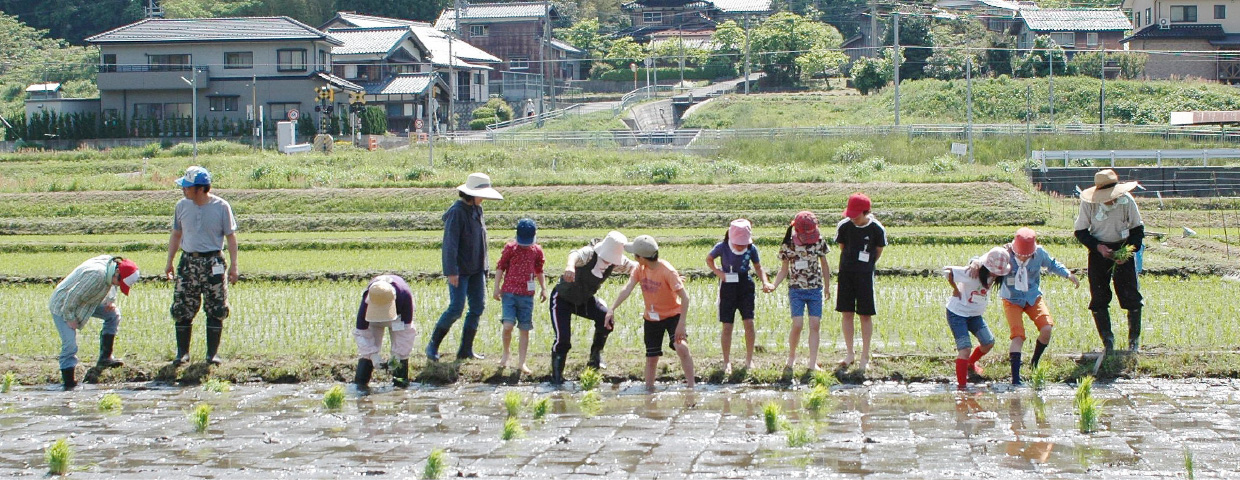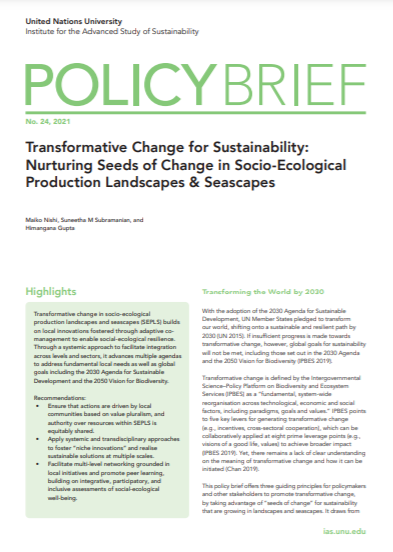NEWS

New publication: Policy Brief on transformative change in SEPLS
2021.05.26
A new Policy Brief from the United Nations University Institute for the Advanced Study of Sustainability (UNU-IAS), host of the IPSI Secretariat, provides recommendations for advancing transformative change in socio-ecological production landscapes and seascapes (SEPLS) — areas where sustainable production activities and resource management can result in societies in harmony with nature. The brief identifies effective methodologies, building on local innovations fostered through adaptive co-management, to build social-ecological resilience and advance global agendas including the Sustainable Development Goals (SDGs) and the 2050 Vision for Biodiversity. The brief, Transformative Change for Sustainability: Nurturing Seeds of Change in Socio-Ecological Production Landscapes & Seascapes, offers three guiding principles for policymakers and other stakeholders to promote transformative change, by taking advantage of “seeds of change” for sustainability that are growing in landscapes and seascapes. It is authored by UNU-IAS researchers Maiko Nishi, Suneetha M. Subramanian, and Himangana Gupta.
Highlights
Transformative change in socio-ecological production landscapes and seascapes (SEPLS) builds on local innovations fostered through adaptive co-management to enable social-ecological resilience. Through a systemic approach to facilitate integration across levels and sectors, it advances multiple agendas to address fundamental local needs as well as global goals including the 2030 Agenda for Sustainable Development and the 2050 Vision for Biodiversity.
Recommendations:
- Ensure that actions are driven by local communities based on value pluralism, and authority over resources within SEPLS is equitably shared.
- Apply systemic and transdisciplinary approaches to foster “niche innovations” and realise sustainable solutions at multiple scales.
- Facilitate multi-level networking grounded in local initiatives and promote peer learning, building on integrative, participatory, and inclusive assessments of social-ecological well-being.
The policy brief is available for download on at UNU Collections here.
The research was published in the book Fostering Transformative Change for Sustainability in the Context of Socio-Ecological Production Landscapes and Seascapes (SEPLS), compiling 11 detailed case studies from different countries.



